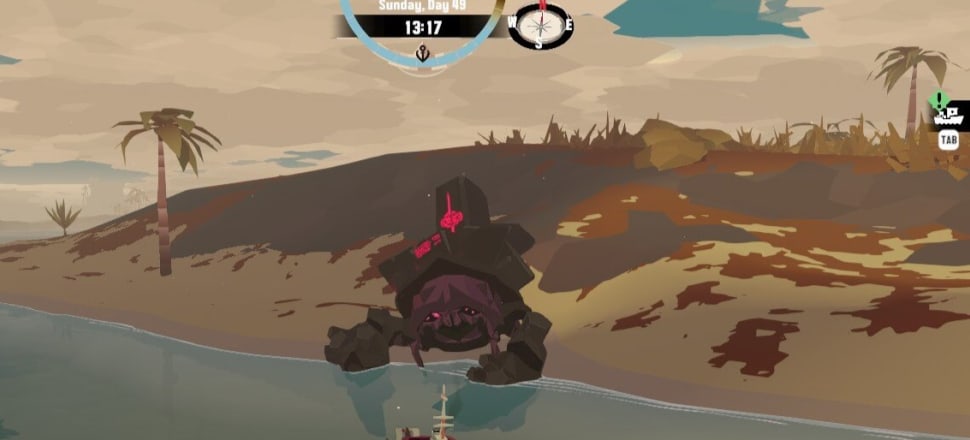
A 20 percent tax rebate for New Zealand's game developers in Budget 2023 is half Australia's offering, but the industry is pleased
Without a tax break in today’s Budget, leaders of New Zealand’s lucrative gaming industry would have been packing their bags and buying tickets to Australia, an industry leader says.
After a year or so of heavy industry campaigning to get New Zealand to match Australian federal and state tax rebates that have driven a brain drain across the Tasman, the Labour Government announced a 20 percent rebate in the 2023 budget.
The Budget said gaming was a great example of a sector that has high-skill and high-wage jobs that aligned with Labour’s economic plan.
READ MORE: * Government investigates giving game makers a break to beat brain drain * Budget 2023: ECE expansion, prescription changes in ‘pragmatic’ plan * Budget 2023: Climate fund slashed by $800m
The rebate will cost $160 million and while the final design is a work in progress, it plans to offer up to $3m in rebate funding per year to individual studios.
This rebate doesn’t come close to matching the Australian offering, which in some states is as high as 45 cents back on the dollar, but the game development industry feels heard.
Without incentives the sector feared skilled workers and studios would be forced to move to Australia to stay competitive, creating a situation where there would be very few left in New Zealand to train the next generation.
Despite the brain drain and investment difficulties caused by having to compete with Australia, the New Zealand games industry has still been punching above its weight.
At the end of March, Christchurch-based Black Salt Games released indie fishing/exploration video game Dredge to rave reviews (10/10 on popular platform Steam), reportedly selling almost 80,000 copies and bringing in millions in its first week.
Tim Bourne of Black Salt’s sister company and the South Island’s largest game developer, Cerebral Fix, said the rebate was huge for the local industry, but it wasn’t as much as he would have hoped in response to Australia’s incentives.
“The games industry in New Zealand is still larger than the games industry in Australia and we have some amazing people here and an amazing community of game developers in game studios.
“So this support is only going to make the industry even stronger and allow us to punch even more above our weight.”
Decade of work
For Bourne this is the culmination of not just months of lobbying, but an entire decade of trying to be taken seriously.
“The games industry is normally looked at as secondary to tech and everything else and we've had to push along for a long time without support to grow the industry.”
He said the industry had relied on being supportive of each other to make it this far, “We've always kind of felt like the Government doesn't take us seriously, so this is a big step towards feeling that way.”
Bourne said the industry had to sit and watch as international film studios received massive grants for projects where the profits all drained offshore.
“It's really validating to see some support come in, it’s going to help our industry grow to the billion-dollar industry we want it to be.”
He said with the grant in place we should expect more chart-topping titles like Dredge to come out of New Zealand.
RocketWerkz chief operating officer Stephen Knightly said a handful of New Zealand studios had opened up studios in Australia already, “Some of our largest studios would have next week jumped on a place to Australia without this Budget announcement.”
“Yeah the 20 percent rebate doesn't compare with 30 to 45 in Australia, but the games industry in New Zealand backs ourselves.
“This rebate is not enough to completely level the playing field, but we're still looking forward to beating the Aussies.”
He said the game development industry already contributed more than $100m in income tax annually, “The industry does pay its way and as we continue to grow, this will be a net benefit for the Government, it will earn more tax dollars out of it than they invest in the rebate.”
New Zealand Game Developer Association chair Chelsea Rapp said the rebate was sufficient to help stem the losses to Australia that studios were seeing in both talent and investment.
“Every single investor was saying what are you going to do about Australia, we will invest in your business but only if you move to Australia. Those sorts of pressures I think will not completely subside, but it will at least allow us to be competitive, and that was always the goal.”
She said with tax rebates in excess of 40 cents on the dollar it would be irresponsible for studios not to consider shifting,
“If this hadn’t been included [in the Budget], we would have seen the first contraction of the industry in its 30-year history. So many studios were saying we’re looking at our growth plans for 2024 and it all hinges on this.”She said the devil would be in the detail and the association was looking forward to working with MBIE to ensure it was implemented in the most advantageous way.







